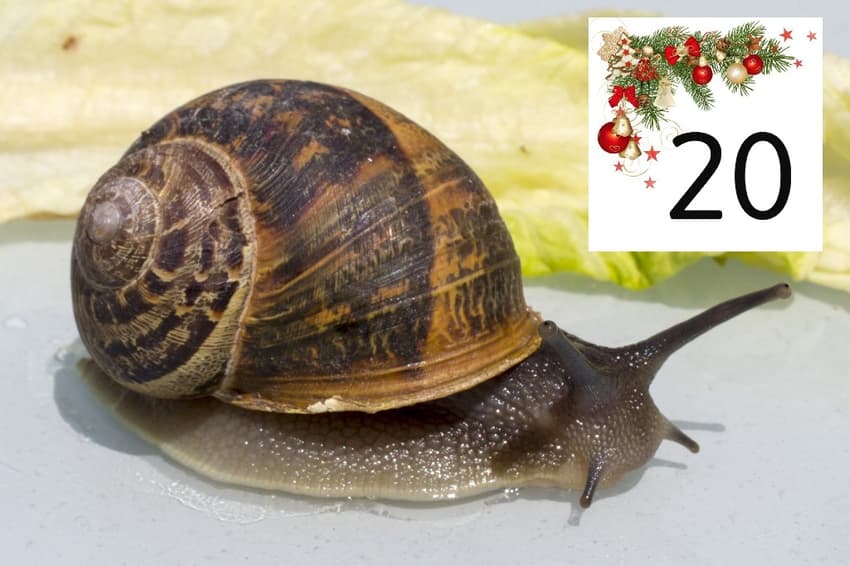French figures: The creature that sparked a protest method

There's a popular stereotype that the French eat snails, although actually it's not as common as you might imagine, but the snail is also key to another aspect of French life - protests.
If you hear about an Opération escargot, don't be looking out for any slimy creatures with shells.
You will see things going slowly though, which is how the humble snail inspired a popular form of French protest.
An Opération escargot is what we might call a rolling roadblock in English - it's when several cars, lorries or tractors drive very slowly together along a major route, creating a massive traffic jam behind them.

Farmers stage an Opération escargot on the motorway near Calais. Photo: AFP
And it's a commonly-used method of protest in France - angry farmers do it in their tractors, if hauliers get involved in any sort of protest they usually stage as Opération escargot and the Paris ringroad is always a popular location. Generally a traffic-choked nightmare at the best of times, the périphérique sometimes comes to a complete standstill if angry lorry drivers, taxi drivers or driving instructors are staging a protest there.
Its name comes, of course, from the fact that snails are famously slow movers.
As well as on the roads and on bistrot menus, you will also finds snails in a bakery - an alternative name for a pain aux raisins is an escargot, particularly in eastern France.
La viennoiserie grande oubliée des débats linguistiques qui divisent la France #ParlezVousLesFrançais pic.twitter.com/EtO8kQDWpJ
— Mathieu Avanzi (@MathieuAvanzi) October 29, 2019
This article is part of The Local France's 2020 virtual advent calendar - every day until Christmas we will be presenting you with a person or object that has a particular significance to life in France.
Comments
See Also
If you hear about an Opération escargot, don't be looking out for any slimy creatures with shells.
You will see things going slowly though, which is how the humble snail inspired a popular form of French protest.
An Opération escargot is what we might call a rolling roadblock in English - it's when several cars, lorries or tractors drive very slowly together along a major route, creating a massive traffic jam behind them.

Farmers stage an Opération escargot on the motorway near Calais. Photo: AFP
And it's a commonly-used method of protest in France - angry farmers do it in their tractors, if hauliers get involved in any sort of protest they usually stage as Opération escargot and the Paris ringroad is always a popular location. Generally a traffic-choked nightmare at the best of times, the périphérique sometimes comes to a complete standstill if angry lorry drivers, taxi drivers or driving instructors are staging a protest there.
Its name comes, of course, from the fact that snails are famously slow movers.
As well as on the roads and on bistrot menus, you will also finds snails in a bakery - an alternative name for a pain aux raisins is an escargot, particularly in eastern France.
La viennoiserie grande oubliée des débats linguistiques qui divisent la France #ParlezVousLesFrançais pic.twitter.com/EtO8kQDWpJ
— Mathieu Avanzi (@MathieuAvanzi) October 29, 2019
This article is part of The Local France's 2020 virtual advent calendar - every day until Christmas we will be presenting you with a person or object that has a particular significance to life in France.
Join the conversation in our comments section below. Share your own views and experience and if you have a question or suggestion for our journalists then email us at [email protected].
Please keep comments civil, constructive and on topic – and make sure to read our terms of use before getting involved.
Please log in here to leave a comment.